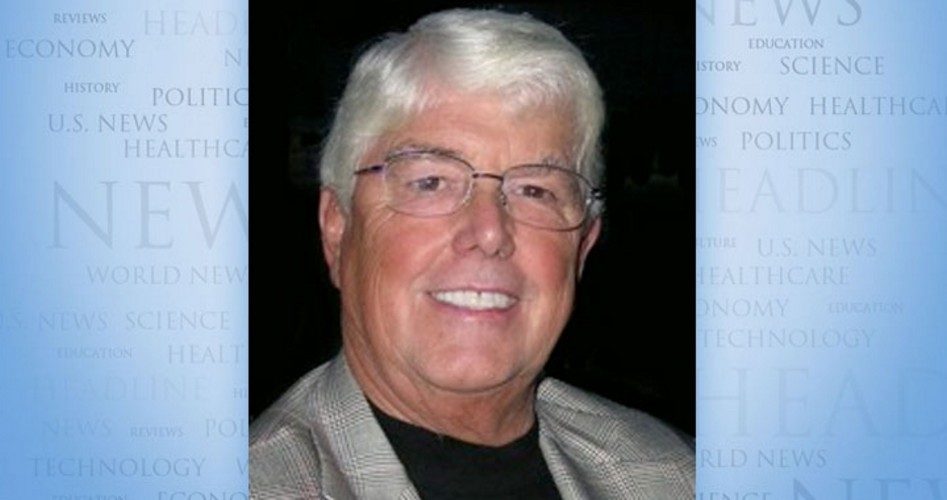
By now all the world knows how badly the liberal moderators of CNBC botched last Wednesday’s Republican debate. Anderson Cooper, CNN’s fair-haired boy, said John Harwood, Carl Quintanilla and Becky Quick did such a terrible job they hurt the reputation of the entire media. Bill Maher, who normally would be giving hysterical rants against the right, applauded Ted Cruz’s denunciations of the bias on display that night.
Reince Priebus, the chairman of the Republican National Committee, called the performance a “crap sandwich” and announced that he was suspending plans for a second debate sponsored by the NBC, CNBC’s parent network.
The moderators’ bias and antagonism was obvious from the very first question when they asked Ohio Governor John Kasich to repeat his previous attacks on Donald Trump and Ben Carson. Kasich was only too happy to oblige.
Later, Kasich demonstrated just how far he was willing to go to ingratiate himself with the left when he praised the moderators for their performance. “I thought they did a good job,” he said in response to a reporter’s question. “I’m very pleased with — I had time to speak and talk about the fantasy land and also be able to talk about my plans and programs….”
He certainly should have been happy with the time he was given. Even though he was in last place in the polls, among the 10 candidates on stage, he got more airtime during the debate than Donald Trump and Ben Carson, the two front runners.
Ted Cruz (R-Texas) got a roar of approval from the crowd when he turned the table and criticized the moderators. Here’s how he exposed their nasty agenda:
The questions that have been asked so far in this debate illustrate why the American people don’t trust the media. This is not a cage match. And if you look at the questions — “Donald Trump, are you a comic-book villain?” “Ben Carson, can you do math?” “John Kasich, will you insult two people over here?” “Marco Rubio, why don’t you resign?” “Jeb Bush, why have your numbers fallen?” How about talking about the substantive issues the people care about?
Marco Rubio (R-Fla.) also scored points when he said that the Democrats have the support of the biggest super-PAC (political action committee) in the country — the mainstream media.
When one of the moderators, John Harwood, repeatedly interrupted his attempt to answer a question, New Jersey Governor Chris Christie scored big with the crowd when he said, “I’ve got to tell you the truth; even in New Jersey what you’re doing is called rude.”
Later, Christie got even more applause when he denounced a question asking if the federal government should regulate betting on fantasy football, citing a long list of more substantive matters the contenders should have been discussing.
Yes, the liberal bias of the three CNBC moderators was obvious — and annoying. But it was great to see how most of the contenders threw it right back in their faces.
But Kasich wasn’t the only person on stage last Thursday who was willing to go along with the moderators and attack a fellow candidate. Former Florida Governor Jeb Bush tried to revive his faltering campaign by condemning his one-time protégé, Marco Rubio, for missing so many Senate votes. He said the Florida senator should either “show up,” or “just resign and let someone else take the job.”
Rubio won the exchange, however, when he pointed out that previous presidential candidates who were senators, including Barack Obama and John Kerry, missed a majority of votes during their campaigns for the nation’s highest office. In fact, so did John McCain in 2008, without any criticism from Bush. “The only reason you’re doing it,” Rubio said, “is that we’re running for the same position and someone has convinced you that attacking me will help you.”
It didn’t. All it did was confirm the stupidity of a Republican candidate trying to score points by attacking a fellow candidate.
No, last Wednesday’s debate proved once again that a candidate will fare best when he or she attacks the Democratic opposition — including Barack Obama, Hillary Clinton — and the media.
That’s why Rubio got so much applause when he said the Democrats enjoy the support of one of the most powerful political action committees in the country — the liberal media.
Indeed they do. But hopefully last Wednesday will be the last time when the Republicans allow them to control what is asked in a nationally televised debate.
Until next time, keep some powder dry.
Chip Wood was the first news editor of The Review of the News and also wrote for American Opinion, our two predecessor publications. He is now the geopolitical editor of Personal Liberty Digest. This article first appeared on PersonalLiberty.com and has been reprinted with permission.


